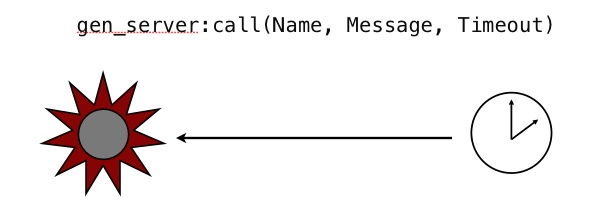Typed Actors are Discouraged in Akka?

Coming from an Erlang background, I tend to use the gen_server approach (known as active object patten) when it comes to implementing a server process (or actor in the Akka world). There are some benefits with this approach, the most important one being that the API interfaces can be well defined, which enables type checking, more maintainable code and better IDE support.
There seem to be something similiar to gen_server in Akka known as typed actors. Here is a very simple example:
1
2
3
4
5
6
7
8
9
10
11
12
13
14
trait Api {
def doSomething(): Unit //fire-forget
}
class ApiImpl extends Api {
def doSomething() = {
println("doSometing")
}
}
val api = TypedActor(system).
typedActorOf(TypedProps(classOf[Api], new ApiImpl()), "Api")
api.doSomething() // will print "doSomething"
If we invoke api.doSomething, a message will be sent to a hidden actor telling it to execute the doSomething function, exactly what you would expect from a gen_server.
The documentation of typed actor seem to suggest that it should be sparsely used because it can be abused as RPC, which is known as a leaky abstraction. There is also a discussion on stackoverflow where people seem to suggest that the way to fix the problem that plain Akka actor lacks well defined API is to make better documentation. I am aware of the fact that typed actor is unable to perform become/unbecome operations and is less explicit of the fact that it’s an actor (which is the case for gen_server as well, but doesn’t seem to be a problem for developers). I am still not convinced that the cons of using typed actors outweighs the pros.
I think typed actor should be used more, am I wrong?
